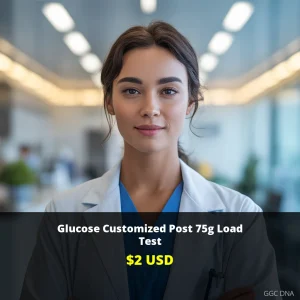Insulin Antibodies Test: Comprehensive Autoimmune Diabetes Evaluation
Understanding Insulin Antibodies Testing
The Insulin Antibodies Test is a sophisticated diagnostic examination that plays a vital role in identifying autoimmune responses against insulin in the body. This specialized test detects the presence of antibodies that mistakenly target insulin, the essential hormone responsible for regulating blood sugar levels. When these antibodies develop, they can interfere with insulin’s normal function, potentially leading to various diabetes-related conditions and complicating diabetes management.
What Does the Insulin Antibodies Test Measure?
This advanced laboratory test specifically measures the concentration of autoantibodies directed against insulin molecules in your bloodstream. Using the highly sensitive Enzyme Immunoassay method, the test identifies:
- Anti-insulin antibodies that bind to insulin molecules
- Quantitative levels of insulin autoantibodies
- Immune system responses against endogenous insulin
- Autoimmune markers associated with diabetes development
Who Should Consider Insulin Antibodies Testing?
Clinical Indications and Symptoms
This test is particularly recommended for individuals experiencing:
- Newly diagnosed diabetes with atypical presentation
- Suspected autoimmune diabetes conditions
- Unusual insulin resistance patterns
- Patients with family history of autoimmune disorders
- Individuals experiencing insulin therapy complications
- Children and young adults with rapid-onset diabetes symptoms
- Patients with fluctuating blood sugar levels despite treatment
Key Benefits of Insulin Antibodies Testing
Undergoing the Insulin Antibodies Test provides numerous advantages for comprehensive diabetes care:
- Accurate Diagnosis: Helps distinguish between Type 1 and Type 2 diabetes
- Treatment Guidance: Informs appropriate insulin therapy decisions
- Early Detection: Identifies autoimmune diabetes before severe symptoms develop
- Monitoring Tool: Tracks autoimmune activity in established diabetes cases
- Risk Assessment: Evaluates potential for future diabetes complications
- Personalized Care: Enables tailored diabetes management strategies
Understanding Your Test Results
Interpreting Insulin Antibodies Levels
Your test results will provide valuable insights into your autoimmune status:
- Normal Range: Absence or low levels of insulin antibodies suggest minimal autoimmune activity
- Elevated Levels: Increased antibody concentrations may indicate autoimmune diabetes processes
- Clinical Correlation: Results should be interpreted alongside other diabetes markers and clinical symptoms
- Follow-up Recommendations: Your healthcare provider will discuss appropriate next steps based on your specific results
Test Pricing and Availability
| Service | Price (USD) |
|---|---|
| Discount Price | $88 |
| Regular Price | $112 |
Convenient Testing Process
Our Insulin Antibodies Test offers exceptional convenience and efficiency:
- No Special Preparation: No fasting or dietary restrictions required
- Quick Sample Collection: Simple blood draw from your arm
- Same-Day Results: Reports available the same day when sample collected by 9 AM
- Nationwide Availability: Testing centers across all major US cities
- Expert Analysis: Results interpreted by experienced diabetologists
Book Your Insulin Antibodies Test Today
Take control of your diabetes management with comprehensive autoimmune testing. Our nationwide network of testing centers in cities including New York, Los Angeles, Chicago, Houston, and Phoenix makes accessing this important diagnostic tool convenient and accessible. Schedule your appointment today to receive accurate, same-day results and expert guidance from our specialized diabetes care team.
Call or WhatsApp us now at +1(267) 388-9828 to book your Insulin Antibodies Test and take the first step toward personalized diabetes care.





